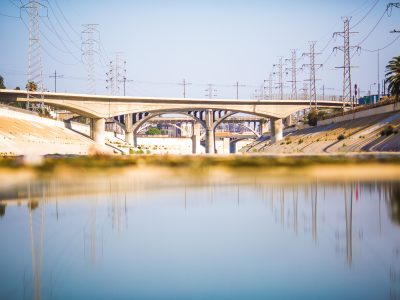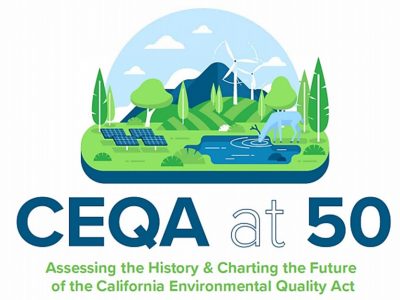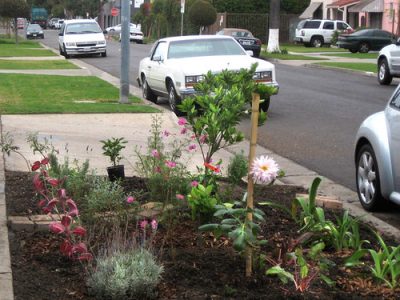General
The Ongoing Tension over Stormwater Discharges in Los Angeles
Upcoming hearings on a proposed new MS4 permit will set the stage for the future of water quality throughout LA County
[Disclosure: The Frank G. Wells Environmental Clinic at UCLA School of Law is representing Los Angeles Waterkeeper on matters related to the subject of this post. I will shortly be joining Los Angeles Waterkeeper as a Staff Attorney. However, like all other Legal Planet posts, this post reflects only my own views and opinions.] The …
Continue reading “The Ongoing Tension over Stormwater Discharges in Los Angeles”
CONTINUE READINGSupreme Court Finds California Labor Access Regulation Works Unconstitutional Taking of Private Property
What Are the Implications of the Cedar Point Nursery Decision for Environmental, Natural Resources & Public Health Programs?
In a closely-watched property rights decision, the U.S. Supreme Court today held unconstitutional a longstanding California regulation allowing labor unions intermittent access to agricultural workplaces for labor organizing purposes. Reversing a decision of the Ninth Circuit Court of Appeals, a 6-3 Supreme Court majority ruled that the challenged regulation triggers a per se, compensable government “taking” …
CONTINUE READINGAnother Historic Climate Court Ruling in the Netherlands
A court orders Shell to cut its emissions, including of its consumers. But will this stand after appeal?
In recent years, The Netherlands has become the leading site of climate change litigation. Contrary to expectations (including my own!), its district, appellate, and supreme courts decided in favor of Urgenda, an upstart environmental organization, ordering the government to more aggressively reduce greenhouse gas emissions. Now the same district court has gone further, again in favor of environmental groups …
Continue reading “Another Historic Climate Court Ruling in the Netherlands”
CONTINUE READINGThe Supreme Court’s (Non-)Decision in Major Climate Change Case
BP P.L.C. v. Baltimore Ruling a Technical Win for Energy Defendants–But There’s Less There Than Meets the Eye
Today the U.S. Supreme Court issued its first major environmental decision of the Court’s current Term–and in a climate change case, no less: BP P.L.C v. Mayor and City Council of Baltimore. Superficially, the multinational energy corporations sued by the City of Baltimore prevailed, in a 7-1 majority opinion authored by Justice Neil Gorsuch. But …
Continue reading “The Supreme Court’s (Non-)Decision in Major Climate Change Case”
CONTINUE READINGBiden and the Environment: The First 100 Days
Biden has set up a lot of future actions. But he’s already got some notches on his belt.
Tomorrow marks Biden’s first 100 days in office. He’s appointed a great climate team and is negotiating an infrastructure bill that focuses on climate change. With luck, those actions will produce major environmental gains down the road. There are also some solid gains in the form of actions that have already come to fruition. Here’s …
Continue reading “Biden and the Environment: The First 100 Days”
CONTINUE READINGOffering “Carrots” to Protect the Amazon
Brazil asks for a billion dollars to slow deforestation. Would this be cooperation or extortion?
In March, US President Joe Biden invited the leaders of 40 countries to a virtual climate change summit, which takes place today and tomorrow. During the lead-up to this, many countries announced commitments of varying specificity and firmness to reduce greenhouse gas emissions. (I hope to write soon on the European Union.) Brazil’s position is …
Continue reading “Offering “Carrots” to Protect the Amazon”
CONTINUE READINGCommon Ground on Climate: Understanding the US-China Joint Statement
After months of growing geopolitical tensions, the US and China have finally found something to agree on: the need to confront the climate crisis. In fact, two days of meetings last week in Shanghai between US Special Presidential Envoy for Climate John Kerry and his counterpart, Special Climate Envoy Xie Zhenhua have culminated in the …
Continue reading “Common Ground on Climate: Understanding the US-China Joint Statement”
CONTINUE READINGU.C. Davis School of Law Hosts “CEQA at 50” Conference on April 16th
Virtual Event Commemorates Past, Predicts Future of the California Environmental Quality Act
Now a half-century old, the California Environmental Quality Act (CEQA) remains California’s most important, cross-cutting and controversial environmental law. Originally patterned on the 1969 National Environmental Policy Act, CEQA has over the decades become a more powerful law than its federal counterpart. And while numerous other states have adopted their own “little NEPA” statutes, CEQA …
Continue reading “U.C. Davis School of Law Hosts “CEQA at 50” Conference on April 16th”
CONTINUE READINGGuest Contributors Kelsey Manes & Ashley Sykora: State Should Clean Up Los Angeles Parkways Impacted by Exide Pollution
Communities for a Better Environment and UCLA Environmental Law Clinic Urge State Agency to Reevaluate Inequitable Cleanup Proposal
We are UCLA Law students enrolled in the Frank G. Wells Environmental Law Clinic, a class in which students work on behalf of community and environmental groups to help advance client goals through legal advocacy. This semester, we worked with Communities for a Better Environment, a community-based environmental justice organization that works in heavily polluted …
CONTINUE READINGMore NYC Oil
Second Circuit Creates Climate Change Preemption
A quick follow-up to Dan Farber’s post this morning regarding the Second Circuit ruling in City of New York v. Chevron. I represented the State of California in the 2011 case, AEP v. Connecticut, in which the U.S. Supreme Court ruled that federal common law applied to interstate climate change pollution (emissions of greenhouse gases), …
Continue reading “More NYC Oil”
CONTINUE READING










